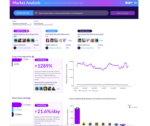
As enterprise developers, you may be relatively unaware of what’s going on in the 3D game engine market. At the annual Game Developers Conference in San Francisco this week, the two titans of game development tools are fighting it out in a battle that’s yielding big wins for developers.
First to strike a blow was Epic Games’ Unreal Engine 4 announcement yesterday. While developers previously had to subscribe to Unreal Engine, now they can use it entirely for free, provided they pay a 5% royalty to Epic Games once game revenue hits $$3,000 per quarter.
Unity fired its salvos this morning, announcing the release of Unity 5. Instead of taking a royalty, Unity Pro costs $75 per month, or $1,500 for a perpetual license. Unity Personal is free, and unlike previous editions that had developers pay the Pro fees to be able to deploy to mobile platforms, it is licensed freely to development teams with less than $100,000 in revenue.
These moves are part of a larger consolidation and realization that has taken place in the game development tools space over the past few years. In 2012, this kicked off when Tencent Holdings bought 48.4% of Epic Games, the makers of Unreal Engine. That purchase was said to cost Tencent $330 million. (Tencent is better known in the United States for owning Riot Games, makers of League of Legends, the world’s most popular videogame with more than 100 million registered users.)
Unity, on the other hand, went from being a quaint Web-based game engine to being a monster of development tooling, with millions of developers worldwide. The company even managed to hire John Riccitiello, former CEO of EA, as its CEO.
This boom is not confined to the big boys, either. Far Cry developers Crytek have seen their 3D engine soar in popularity among developers, but have been largely left out of the open love-fest for Unity and Unreal with their free versions.
Even somewhat kid-focused development tool Game Maker was resurrected and turned into a killer game development platform by former Microsoft executive Sandy Duncan and his team. Game Maker parent company YoYo Games was purchased by Playtech for $16 million just last month. That may not sound like a lot of money, but YoYo Games was essentially a one-man show until Duncan stepped in a few years ago and got things moving again. Prior to his arrival, the scripting language used to make games in Game Maker had never even been documented properly.
All this has been happening against a backdrop of intense video-game market upheaval. As the mobile space and PC gaming continue to drag gamers kicking and screaming out of the living room and away from their consoles, VR tech is now making its way into consumer products, sparking an ever-widening audience for intense 3D experiences. The sort these engines produce.
So while it may not actually affect your day-to-day work in an enterprise, it’s something you should still be paying attention to. After all, the killer 3D engines of today are the interface mediums of normal applications for the future. If your company wants to plan for a Neuromancer future, it will require sending people through 3D VR tubes.






